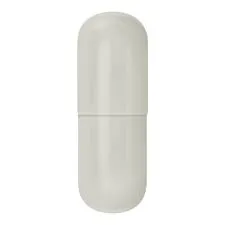
Des . 31, 2024 13:59 Back to list
Is HPMC Soluble in Water and Its Applications in Various Industries
Is HPMC Soluble in Water? A Comprehensive Overview
Hydroxypropyl methylcellulose (HPMC) is a widely used polymer in various fields, particularly in pharmaceuticals, food, and construction. As a cellulose derivative, it has gained popularity due to its unique properties and functionalities. One of the most crucial questions regarding HPMC pertains to its solubility, particularly in water. This article delves into the solubility of HPMC, exploring its implications in different applications, its chemical structure, and relevant characteristics.
Understanding HPMC
HPMC is a semi-synthetic polymer derived from cellulose. It is produced by treating cellulose with propylene oxide and methyl chloride, leading to a compound that has hydroxypropyl and methyl substitutions on the cellulose backbone. These modifications alter the solubility and thermal behavior of the polymer, differentiating it from standard cellulose.
Solubility of HPMC in Water
The key characteristic of HPMC is its solubility in water. It is considered highly soluble, and when mixed with water, it forms a clear, viscous solution. This solubility is influenced by the degree of substitution and the molecular weight of the polymer. Generally, lower molecular weight HPMC grades dissolve more readily in cold water, while higher molecular weight grades may require slightly elevated temperatures to achieve complete dissolution.
The solubility of HPMC is also affected by the concentration of the solution. At low concentrations, HPMC readily dissolves in water, forming a uniform gel-like solution. As the concentration increases, viscosity rises, and the solution exhibits unique rheological properties, which are beneficial in various formulations.
Applications in Different Industries
HPMC's water solubility lends itself to numerous applications across various industries
.is hpmc soluble in water

1. Pharmaceuticals HPMC is extensively used as an excipient in drug formulation. Its ability to form gels and films makes it an ideal candidate for controlled release formulations and hydrophilic matrices. In tablet formulations, it aids in the formulation of sustained-release medications by controlling the release rate of active ingredients. Its solubility ensures that drugs dissolve adequately in bodily fluids for effective absorption.
2. Food Industry In the food sector, HPMC functions as a thickening agent, stabilizer, and emulsifier. Its solubility in water contributes to its effectiveness in food products, enhancing texture and consistency. HPMC is often used in gluten-free products as a binding agent, helping to improve product structure and shelf life.
3. Construction In the construction industry, HPMC is utilized as an additive in cement and mortar formulations. Its solubility in water allows for better workability and improves adhesion properties. By retaining moisture, HPMC enhances the curing process of construction materials, leading to stronger and more durable structures.
Advantages of HPMC's Water Solubility
The water solubility of HPMC offers several advantages
- Versatility Its ability to dissolve in water allows for seamless integration into a variety of formulations, making it suitable for diverse applications. - Non-toxic Nature HPMC is generally recognized as safe (GRAS) by the FDA, making it ideal for use in food and pharmaceutical products. - Controlled Release In pharmaceutical applications, HPMC’s solubility enables the formulation of products with controlled release profiles, ensuring more consistent therapeutic effects.
- Stability HPMC is stable across a wide range of pH and temperatures, making it a reliable choice for various environmental conditions.
Conclusion
In summary, hydroxypropyl methylcellulose (HPMC) is indeed soluble in water, a property that plays a critical role in its functionality across multiple industries. Its high solubility contributes to its versatility, safety, and effectiveness in various applications, from pharmaceuticals to food and construction. Understanding the solubility of HPMC not only highlights its advantages but also underscores its importance as a functional ingredient in modern formulations. Whether you are a formulary scientist, a food technologist, or an engineer, harnessing the unique properties of HPMC can enhance product performance and efficacy in your respective field.
-
Unlocking the Benefits of HPMC Products: A Gateway to Versatile Applications
NewsAug.07,2025
-
Unleashing the Potential of HPMC Ashland: A Comprehensive Look
NewsAug.07,2025
-
Tile Bonding Cellulose: The Key to Superior Adhesion and Durability
NewsAug.07,2025
-
Hydroxypropyl Methylcellulose Powder: The Versatile Component in Modern Pharmaceuticals
NewsAug.07,2025
-
Hydroxyethyl Cellulose: The Versatile Solution for Various Industries
NewsAug.07,2025
-
Hydroxyethyl Cellulose (HEC): The Versatile Polymer for Various Applications
NewsAug.07,2025







